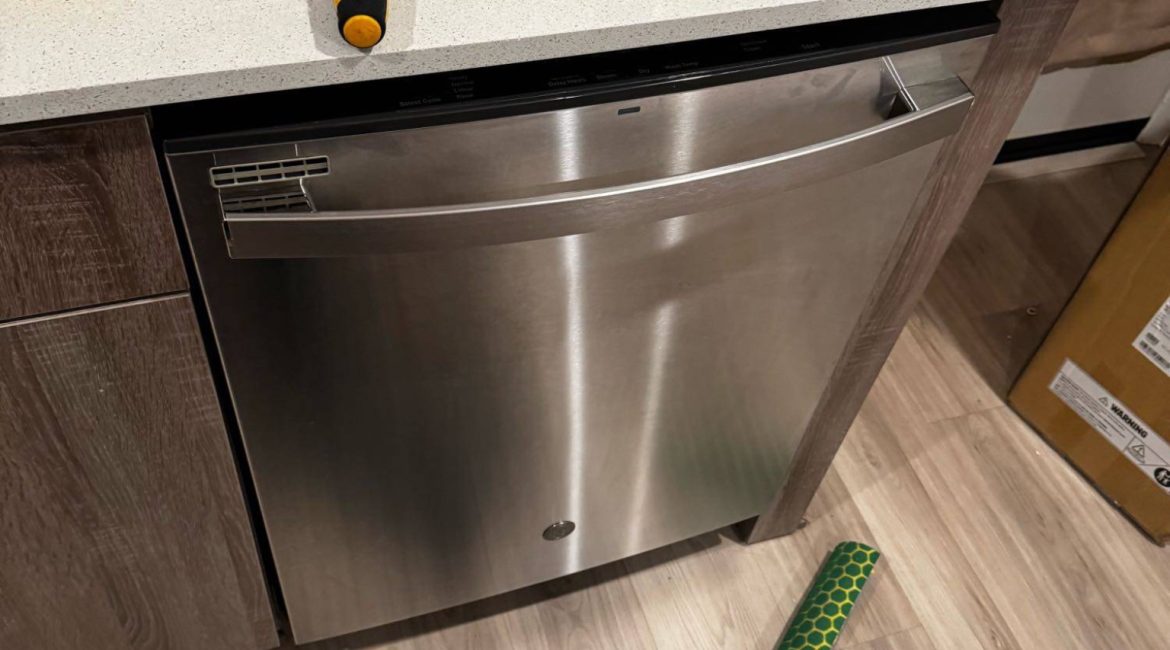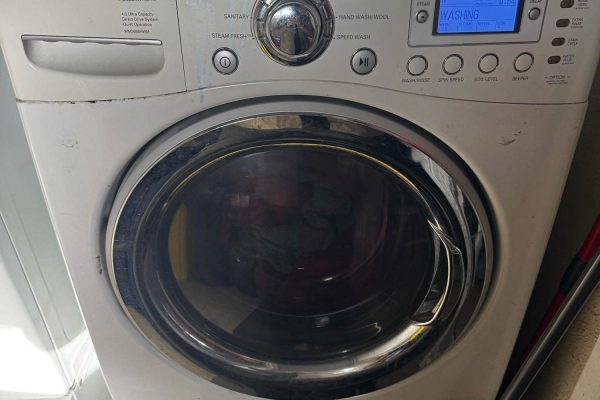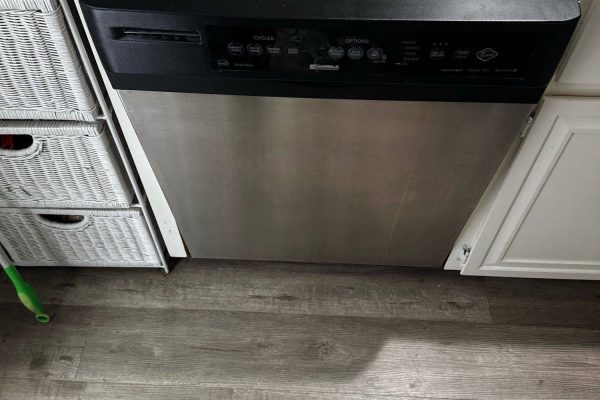A dishwasher that drains slowly is one of the most common yet frustrating household appliance issues. Instead of finishing a cycle with clean dishes and an empty tub, you may find standing water at the bottom, unpleasant odors, or streaks and residue left on plates and glasses. When a dishwasher takes longer than usual to remove wastewater, the problem usually comes down to two key components: a partially clogged drain hose or a weak, failing drain pump. Both issues can worsen over time, reduce appliance efficiency, and increase the risk of leaks or complete drainage failure. Understanding the causes, symptoms, and solutions will help you prevent further damage and know when to seek professional repair.
Why Proper Drainage Matters
Efficient drainage is essential for the overall operation of a dishwasher. Wastewater contains food particles, grease, detergents, and debris that must be flushed out completely during each cycle. If the water remains in the tub longer than intended, it interferes with rinsing, compromises drying performance, and can even allow bacteria or mold to form. Slow drainage also forces your dishwasher to work harder, increasing energy consumption and placing extra strain on internal components.
1. Partially Clogged Drain Hose
One of the most common reasons for slow dishwasher drainage is a partially blocked drain hose. This hose carries wastewater from the dishwasher to the plumbing system. With regular use, food remnants, grease buildup, hardened detergent, or even small foreign objects can accumulate inside the hose, narrowing the pathway and restricting the flow of water.
Common signs of a clogged drain hose include:
- Water pooling at the bottom of the dishwasher
- Gurgling sounds during draining
- Bad odors coming from the appliance
- Intermittent or incomplete draining
In many homes, the drain hose runs through tight spaces behind cabinets or under the sink. Any sharp bends or kinks further reduce water flow and worsen the problem. While some homeowners attempt to detach and clean the hose themselves, improper handling can cause leaks, misalignment, or additional blockages. A trained technician can inspect the entire drainage route, remove obstructions safely, and ensure the hose is routed correctly.
2. Weak or Failing Drain Pump
The drain pump plays a critical role in pushing water out of the dishwasher. When it becomes weak, clogged, or electrically damaged, the dishwasher cannot remove wastewater quickly enough. Over time, the pump motor can wear down due to age, overheating, or debris that enters the pump chamber.
Symptoms of a failing drain pump include:
- Slow, weak water flow during draining
- A humming or buzzing noise instead of normal pump operation
- Water remaining in the bottom after cycles
- Drain error codes on digital models
A drain pump issue typically requires professional service. Technicians can test the motor, inspect the impeller for damage, and check electrical continuity. In many cases, replacing the pump restores full drainage speed and prevents future breakdowns.
Additional Causes of Slow Drainage
Although the drain hose and pump are the main culprits, other related factors may also contribute:
Dirty or Clogged Filters
Dishwashers contain internal filters that catch food particles. If not cleaned regularly, these filters can block water flow and lead to slow draining.
Blocked Air Gap
Some kitchens include an air gap near the sink to prevent backflow. A clogged air gap disrupts drainage and must be cleaned periodically.
Clogged Garbage Disposal
When the dishwasher drains through the garbage disposal, a blockage inside the disposal can slow or stop drainage entirely.
Improper Installation
Incorrect hose height, reverse slopes, or poorly sealed connections can affect how quickly water exits the machine.
A professional technician can evaluate the entire drainage system and identify any hidden or combined issues.
When to Call a Professional
If your dishwasher continues to drain slowly after basic cleaning of filters or running a cleaning cycle, the problem is likely deeper than surface-level debris. Both the drain hose and pump require technical knowledge and proper tools to diagnose and repair safely. Trying to fix them without experience can lead to water leaks, electrical risks, or further appliance damage.
Slow drainage can escalate quickly into standing water, foul smells, or complete pump failure. The sooner the issue is addressed, the lower the repair cost and the longer your dishwasher will last.
Reliable Professional Help
If you are dealing with slow dishwasher drainage, repeated standing water, or concerns about the drain hose or pump, a qualified technician can provide a full inspection, correct diagnosis, and reliable repair. Restoring proper drainage ensures cleaner dishes, better efficiency, and a longer appliance lifespan.
For fast, expert assistance, contact Poway Appliance Repair Service Center. Our specialists have experience with every dishwasher brand and model, and we deliver prompt, high-quality service to restore your appliance to full performance.
If your dishwasher drains too slowly or shows signs of a clogged hose or weak pump, do not wait for the issue to worsen. Contact Poway Appliance Repair Service Center today for professional diagnostics and dependable repair service.
Contact us


